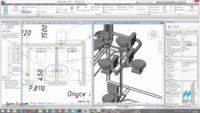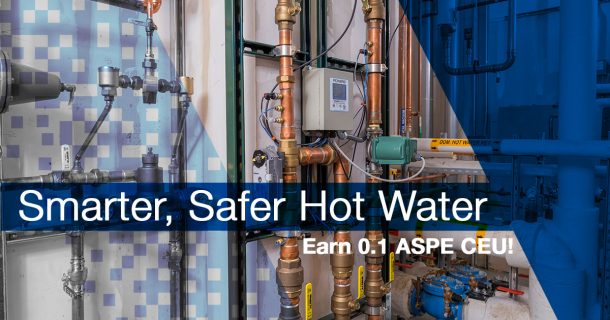More builders and architects are building sustainability into their practice and conducting water efficiency planning including water-saving solutions and installation of water-saving measures, analyses of costs and uses of water, specification of water-saving solutions; installation of water-saving measures. As a result, Niagara recently launched a new CEU course for builders, architects, engineers, plumbing engineers and Read more
Education CEUs

More builders and architects are building sustainability into their practice and conducting water efficiency planning including water-saving solutions and installation of water-saving measures, analyses of costs and uses of water, specification of water-saving solutions; installation of water-saving measures.
As a result, Niagara recently launched a new CEU course for builders, architects, engineers, plumbing engineers and plumbers that addresses water conservation standards, ways to reduce water consumption and green building benefits.
The Benefits of Implementing Water Conservation Standards by Building Beyond Code. Niagara just launched a new CEU course on Water Conservation for building owners and builders, architects and engineers. A team of experts at Niagara pooled their resources together with AIA and created a course that qualifies for 1.00 LU/HSW hours called The Benefits of Implementing Water Conservation Standards by Building Beyond Code. The course is delivered via webinar through AEC Daily.
The planet is currently in a water scarcity crisis, and toilet water usage can have a significant impact on improving this crisis. This course examines the current plumbing codes, standards, and regulations that address toilet water usage. It also details the need for, and the benefits of, going beyond current standards as well as the goals of a variety of beyond the code voluntary standards and rating systems. It explains the various types of low and ultra low flow toilets, their pros and cons, and their selection criteria. It concludes with a sampling of successful cost and water saving installations. Upon completion of this course, participants will be able to:
- Significantly reduce water consumption and costs by using low and ultra low flow toilets
- Capitalize on green building benefits by lowering water consumption with ultra high efficiency toilets (UHETs)
- Inform developers on financial incentives related to water conservation for affordable housing programs, and
- Optimize the benefits available from exceeding current code and standard water consumption requirements.
BIM object: In addition to the above course, Niagara recently teamed up with BIM Object, a company who offers rivet files to architects and engineers for specifying projects, to make specifying their fixtures even simpler. Engineers, contractors and architects can access files for all of Niagara’s Pro models to utilize their industry-leading warranties, earn LEED points, and merit lower tap or impact fees when specing out their next property
For more information on Niagara please visit niagaracorp.com.

Watts has announced the next installment in a series of webinars for their engineer, architect, designer, and facility manager customers: Smarter, Safer Hot Water, to be broadcast live on Wednesday, August 28, 2019. This latest webinar will focus on how digital mixing valves enable engineers, designers, and facility managers to directly measure, monitor, and deliver Read more
Watts has announced the next installment in a series of webinars for their engineer, architect, designer, and facility manager customers: Smarter, Safer Hot Water, to be broadcast live on Wednesday, August 28, 2019.
 This latest webinar will focus on how digital mixing valves enable engineers, designers, and facility managers to directly measure, monitor, and deliver safer hot water through domestic water systems.
This latest webinar will focus on how digital mixing valves enable engineers, designers, and facility managers to directly measure, monitor, and deliver safer hot water through domestic water systems.
Key points to be covered include an overview of how digital mixing valves:
- Efficiently deliver mixed water throughout a hot water recirculation loop while allowing remote monitoring and control of water temperatures,
- Minimize the risk of waterborne bacteria in high-performance commercial and institutional facilities, and
- Provide precise control needed to deliver high water temperatures that mitigate the risk of the deadly Legionella bacteria (the cause of Legionnaires’ disease) while avoiding the risk of scalding and thermal shock injuries.
By attending the entire webinar, attendees can receive 0.1 Continuing Education Units (CEUs) through the American Society of Plumbing Engineers (ASPE).
To register for this webinar, please visit this page.
